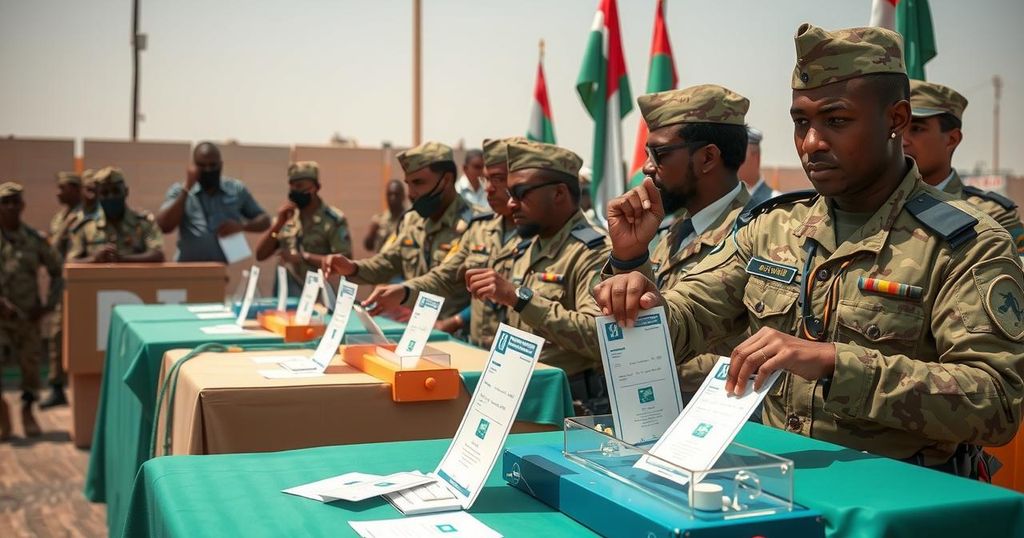Chadians are voting in their first parliamentary and regional elections in over a decade, marking the end of a three-year military transitional period. However, the opposition is boycotting the elections, following the disputed presidential election won by junta leader Mahamat Idriss Deby, who succeeded his late father.
Chadians are participating in a parliamentary and regional election that signifies the conclusion of a three-year transitional period characterized by military governance. The opposition, however, has opted to boycott the election, meaning this event is met with significant division. This parliamentary election marks the first opportunity for citizens to vote in more than ten years, following the tenure of Mahamat Idriss Deby, who assumed leadership after the passing of his father, the long-serving president Idriss Deby Itno in 2021. The recent presidential election led by Junta leader Deby was marred by accusations of irregularities, despite intentions to restore democratic governance in the country.
The context of the political landscape in Chad reveals a nation grappling with the legacy of military rule. The transitional government, spearheaded by Mahamat Idriss Deby, took power effectively in 2021 after the death of former President Idriss Deby Itno, who held power for thirty years. Deby’s ascension was coupled with a mandate to transition towards democracy, yet the recent boycotting of elections by major opposition parties underscores the continuing challenges in establishing a truly representative government. Such tensions highlight the struggle between different political factions in Chad as the military authority attempts to pave the way for civilian governance.
In conclusion, the parliamentary and regional elections in Chad symbolize a potential turning point as the country seeks to transition from military rule to a democratic framework. However, the boycott by the main opposition parties casts a shadow over the legitimacy and credibility of the electoral process. As Mahamat Idriss Deby’s government pushes forward, it remains to be seen how these elections will affect the political stability and future governance in Chad.
Original Source: www.wdrb.com






